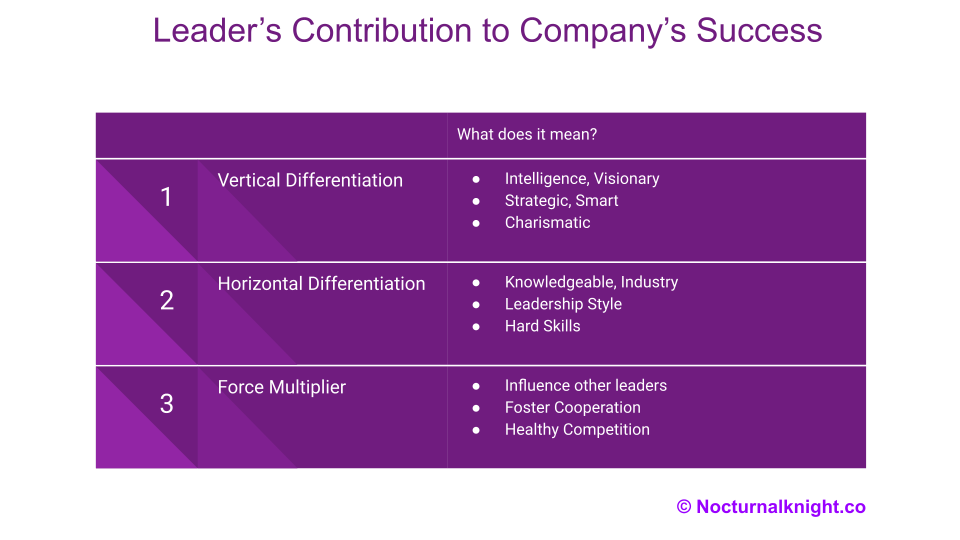The Paradox of Superhero Leadership
Disclaimer: I have immense regard for Elon Musk, so much so, I have gifted Ashlee Vance’s book on the Paypal Mafia boss to multiple people. I have even compared him to the fictional Peter Weyland in my discussions with fellow nerds. But this article is not about the trailblazing leader who sows the seeds of interplanetary exploration/colonisation. It is more about the God Complex and a reflection of multiple things that come with it which may or may not be positive. I have written about the superhero style of leadership earlier as well and briefly, touched on it in a previous article, albeit on a much smaller scale.

Introduction:
Off lately, there is a view, it is called the “superhero” theory of leadership. In which, the individual vision, charisma, and brilliance of a CEO “makes or breaks” a company. This view is absolutely dangerous — not because CEOs don’t matter or that smarts and vision don’t help. It’s dangerous because of what it ignores. Great leadership takes both mundane “management” skills and highly specialised “Domain-specific” ones. The most effective leaders have the knowledge and softer aspects that are specific to their company and industry that allow them to not just motivate, but also drive other people in the organization to do what’s necessary to succeed.
It’s been a hell of a time for the last two or three months, for news reporters, management consultants, professors in Ivy league & Red Bricks and the new age “gurus” and “influencers”. The fiasco with FTX is an unbelievable story of lapse of controls, comparable to Enron, Daewoo and Satyam. Which supposedly is an understatement as per the new executive appointed to steward it through bankruptcy. Elon Musk’s bid to takeover Twitter and the ensuing drama is equally newsworthy, not sure how much popcorn was sold to watch this drama. And finally, the end arrived for the Theranos story, with Elizabeth Holmes and Sunny Balwani sentenced to 11 years in prison.
All of these stories have something in common, they combine a very flashy leadership style with a blatant disregard for actual management practices.
The issues at FTX are too numerous to even list as a bullet point in this article, but the crux of the problem is simple. It is a complete lack of checks and balances. Plain vanilla management or accounting is not something that gets you on the cover of Fortune or The Economist or Economic Times, but oversight of a company’s activities and checking on finances is the trait of good management and leadership. At FTX, it seems to have been completely ignored. How could the company grow so much in the absence of any basic management systems? The sad part is investors and customers were also fooled by those flamboyant “leadership” (remember Nikola ?)
The trajectory of Musk’s Twitter takeover is even more disturbing. Again, it is a story of a CEO who is proud of his blatant disregard for the basics of management and an almost untainted faith in his “superpowers” and the unchallenged position of his leadership and intellect, also called The God Complex.
At the reinvented Twitter under Musk, there seems to be no regard for basic HR practices as well. Musk has massive challenges to rally and retain his employees; even assuming he wants to “rightsize” by encouraging resignations, his eccentrics may have pushed even the folks whom he intended to retain.
What can we learn from these companies? They are both ongoing, but thus far it seems that these firms have fallen victim to an all too popular belief that “superhero” leadership trumps boring management.
This is wrong, in at least two ways.
First, there is enough evidence that boring management matters and it is a source of competitive advantage for companies that take it seriously. A 2012 research by HBR has shown that management practices vary quite a lot within industries and around the world — and that companies with good management are significantly more profitable. Secondary research has confirmed that good management improves firms’ performance.
What is good management? There’s no single, comprehensive answer. But it looks like this in practice, target-setting, rewards, and monitoring. Well-managed companies set reasonable, strategic goals; set their staff up to contribute to them; and measure their progress.
Call it boring or mundane if you like — it is good business.
A major gap in the superhero theory is that it super simplifies what good leadership is. Consider the current debate over Elon Musk. To his fans, Musk’s success at Tesla, SpaceX and PayPal makes him a great leader. To his critics, the maelstrom at Twitter proves the opposite.
A major gap in the superhero theory is that it super simplifies what good leadership is. Consider the current debate over Elon Musk. To his fans, Musk’s success at Tesla, SpaceX and PayPal makes him a great leader. To his critics, the maelstrom at Twitter proves the opposite. That’s too binary, black or white. The reality is a million shades of Grey in between Black and White! Prior research does show that CEOs do matter to a company’s success, but their contribution is about more than just grand vision and raw intellect. And how much of what depends very much on the organisational backdrop.
We think of a leader’s contribution to a company along three dimensions.

The superhero narrative simplifies the entire facet of leadership on vertical differentiation, because it’s fun & easy to argue over and write cover stories about. The other two factors — Horizontal differentiation and Force Multiplier (ability to influence an organization) — are much harder to discuss and not that fun to write about.
But, when an entire generation has grown upon SuperHero movies where it is the Vision, Grit and perseverance of the Hero that saves the day, it is too hard to think in other ways. Even in pop culture, I come from a generation, where the hero gets battered and relies on the collaboration and cooperation of his friends and partners to make it out. Then, there are the “Wise old men” or the occasional woman, who gives some much-needed advice and insights.
How would this three-dimensional assessment differ from the superhero story when it comes to Elon Musk and Twitter? It would complicate the debate that both his fans and his critics seem to be having and instead would go through the three factors mentioned above. Rather than arguing solely about whether Musk is a good CEO in general, we can ask whether he has the skills and experience necessary for running a social media platform — and whether he’ll be able to motivate and manage the team that’s in place.
It’s perfectly reasonable to think, for example, that Musk is an above-average CEO, not particularly well suited to running a social media platform, whose behaviour in the run-up to his Twitter takeover ensured he would not be able to influence the people that he needed to in order to succeed.
This view of leadership is harder to put on magazine covers, and it is therefore often forgotten. But ignoring the complex relationship between leaders and their organizations is bad for investors, consumers, and ultimately for managers and CEOs, too.
References:
1, Super Hero Leadership – https://www.linkedin.com/pulse/superhero-syndrome-leadership-what-good-thing-luke-lynch/?trk=public_profile_article_view
https://www.kingsfund.org.uk/publications/heroic-leadership
https://www.fearlessculture.design/blog-posts/leaders-must-stop-being-superheroes
2, Martyr Syndrome – https://nocturnalknight.co/2022/08/a-tech-lead-writing-code-is-a-disservice-to-the-company/
http://deeelliottconsulting.com/system/files/Leadership%20and%20Martyrs%20in%20the%20Workplace.pdf
3, FTX fiasco – https://www.forbes.com/sites/amyfeldman/2022/11/22/with-a-new-ceo-an-adult-has-arrived-to-clean-up-the-ftx-mess/
4, Theranos Collapse- https://www.theguardian.com/technology/2022/dec/07/former-theranos-exec-sunny-balwani-prison-sentence
5, Does Management really work – https://hbr.org/2012/11/does-management-really-work
6, The effect of Managers in a Firm – https://academic.oup.com/qje/article-abstract/118/4/1169/1925095?redirectedFrom=fulltext

